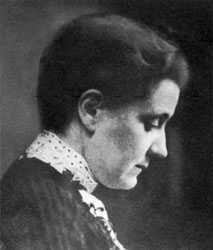Related Topics
Musical Philadelphia
Quakers never cared much for music, but the city has nonetheless musically flourished into international fame. At the same time, quarrels and internal battles have also been world class.
Quakers: All Alike, All Different
Quaker doctrines emerge from the stories they tell about each other.
Customs, Culture and Traditions
Abundant seafood made it easy to settle here. Agriculture takes longer.
Academia in the Philadelphia Region
Higher education is a source of pride, progress, and aggravation.
Indigents
With a long history of welcoming and assisting the poor, Philadelphia has always risked swamping the lifeboat by attracting more of them than it can handle.
Education in Philadelphia
Taxes are too high, but the tax base is too small, so public education is underfunded. Drug use and lack of classroom discipline are also problems. Business and employed persons have fled the city, must be induced to return. Deteriorating education, rising taxes and crime are the immediate problems, but the underlying issue is lack of vigor and engagement by the urban population itself.
Quaker Values and Service
New topic 2016-12-03 20:19:53 description
Settlement Music School

|
| Jane Adams |
The Settlement Music School has six branches, fifteen thousand current students, an $8 million budget, and three hundred thousand alumni. It tells you something about Philadelphia that an organization this large can exist for 98 years, and yet remain almost invisible. So let's tell a few things about it.
The settlement movement began in England around 1880, and was brought to America by a Quaker lady named Jane Addams. Her most famous settlement was called Hull House, in Chicago. Jane Addams seconded the nomination of Theodore Roosevelt at the Progressive Party convention, and was active in the formation of National Association for the Advancement of Colored People, as well as the American Civil Liberties Union. She was a prominent suffragette, and as a Quaker, it might be expected that she was an outspoken pacifist. Remember, what we are talking about here is music.

|
| tenement districts |
Settlements were what nice upper-class ladies called the tenement districts, and a settlement House was a center for activist women to go help the immigrant groups typically found there. Since there is obviously a lot of difference in what needs to be done to help recent ex-slaves, Italian and Jewish immigrants, and all the different ethnic clusters, the Settlement movement is an archipelago of very different forms of social work. One of the ways to appeal to different groups is through the teaching of music, and the teaching on expensive bulky instruments like pianos is quite naturally shared in a school building. While it is true that a couple of Settlement students are admitted to the musical big time at Curtis Institute every year, only a small proportion of Settlement students go on to musical careers. The three most famous musical alumni of the Philadelphia Settlement Music School were Chubby Checker, who invented a dance called the Twist, Albert Einstein. who played the violin in various chamber groups, and former Mayor Frank Rizzo, who learned to play the clarinet.
The mission of the Settlement School has gradually become the spreading of musical appreciation, especially among "the masses", and it measures its success in the size of its audiences rather than by occupying the center of the stage. This function is readily thrust off on them by the eagerness of public school boards to cut expenses, although the School is scarcely in a financial position to go all the way and assume the role of teaching music classes to 250 public schools. Nevertheless, when financial stringency forces the school board to cut expenses, their choice between a music teacher and a football coach is no choice at all. At that moment, a free-standing music appreciation school ceases to be a competitor and becomes a safety valve. When you hear the Settlement School is in need of money, you are likely being told about stringency in the public school budget.
Although the tuition is quite inexpensive for a music school, the students collectively contribute about half of the annual budget. The rest comes mostly from private charity. You really can't expect cutting edge innovation from school children or endowed charities. But somehow this school leaves you with an impression of big missed opportunity in the truly American forms of music like jazz and folk singing. Symphony orchestra was invented in Vienna and flourishes there, so it has a faintly foreign air to it. It's not completely surprising that both the sponsors and the subjects of Americanization for the Slums are hesitant to promote symphonic role models, while the sponsors at least are a little lost in the world of Rock. Not surprising, but something of a pity.
Originally published: Monday, June 19, 2006; most-recently modified: Wednesday, June 05, 2019